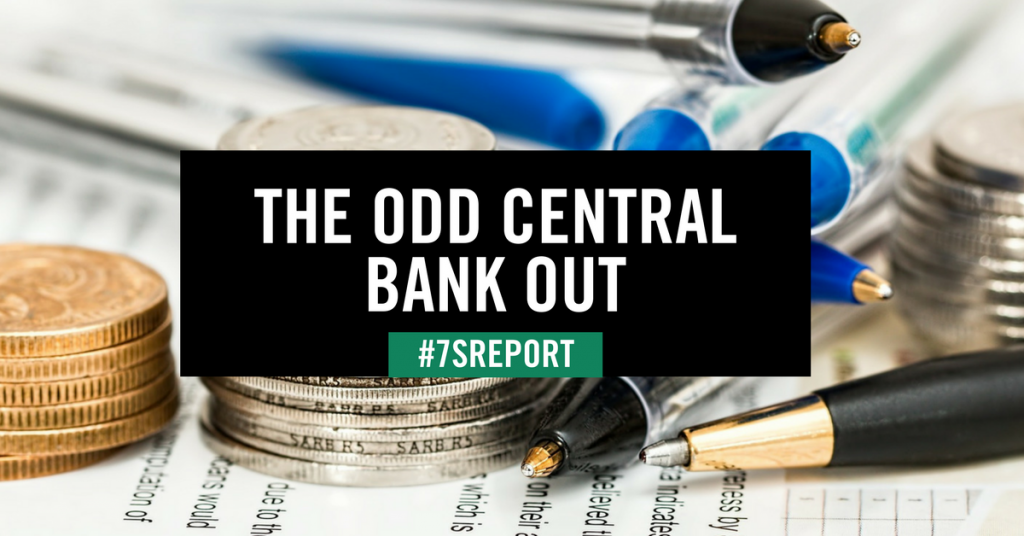The Sevens Report is the daily market cheat sheet our subscribers use to keep up on markets, leading indicators, seize opportunities, avoid risks and get more assets. Get a free two-week trial with no obligation, just tell us where to send it.
Over the past month, we’ve seen some big policy turns at major central banks.
• At its September meeting, the Fed shrugged off low inflation and reiterated its expectation for a rate hike in December, and three hikes in 2017, a more hawkish-than-expected outcome.
• At its September meeting, the Bank of England shocked markets by stating that due to rising growth and inflation, rate hikes would likely be needed in the “relatively near term.” While it’s not certain, many in the markets think the Fed hikes rates in November.
• At its September meeting, the ECB confirmed it will announce details for the “tapering” of its QE pro-
gram, the first step to eventual rate hikes (likely in 2H ’18).
• The Bank of Canada quasi-shocked markets by hiking rates at its July and September meetings, becoming the first developed market central bank to execute consecutive rate hikes in over a decade.
• The Bank of Japan, at its recent meeting, reiterated its dovish stance and the BOJ’s Kuroda even hinted
that the bank may need to become more dovish for the Japanese economy to finally hit its 2% inflation
target.
So, which one doesn’t belong?
The BOJ is the “odd central bank out” in the global trend of less accommodation. I think that creates a potential opportunity in DXJ, the WisdomTree Japan Hedged Equity ETF. The logic behind this opportunity is simple: With global central banks become less accommodative, the yen should decline in value against its major trading partners.
On a basic level, a weakened currency and supportive central bank are still good for stock market performance.
So, if we see the yen weaken to 120 vs. the dollar and see similar declines against the euro and pound, that should be a respective tailwind on the Japanese stock market—just like it has been in the past.
Now, clearly there are risks to this trade, particularly North Korea. But barring a surprise economic or inflation slow-down in Britain, the EU or the US, the trend in rates and those currencies is higher vs. the yen. That should be positive for Japanese stocks over the medium and longer term.
Now, I realize that DXJ has run over the past month (as has everything), but the bottom line is that if dollar/yen goes from 112 to 120 (which is entirely possible if we see a “reflation” in the US) then DXJ will move substantially higher from here.
Cut through the noise and understand what’s truly driving markets, as this new political and economic reality evolves. The Sevens Report is the daily market cheat sheet our subscribers use to keep up on markets, seize opportunities, avoid risks and get more assets. Sign up for your free two-week trial today and see the difference 7 minutes can make.
The post The Odd Central Bank Out, October 4, 2017 appeared first on Sevens Report.
source https://sevensreport.com/odd-central-bank-october-4-2017/

No comments:
Post a Comment